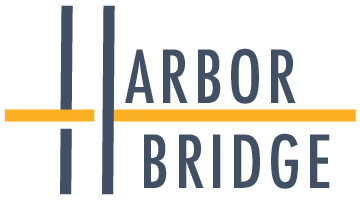How to Manage Mental Overload and Offload Your Cognitive Cargo
In the past week, in several conversations I’ve noticed a trending topic about mental overload on professional well-being and productivity. I've dubbed this experience of carrying a heavy load of thoughts, tasks, and obligations as “Cognitive Cargo.”
"Cognitive Cargo" is not just a catchy term but a significant workplace issue.
Confession to illustrate this: I’ve been stewing over writing this Insight — the mishmash of ideas to process, feeling the pressure of a looming deadline, finding the time in my schedule to sit down and write. It’s consumed more time and brain space than I care to admit and contributed to multiple rewrites and procrastination. So, you could say it’s a bit ironic that a Cognitive Cargo article has actually been freight on my mental cargo vessel.
If you this sounds familiar to you, here are three strategies that lighten the cognitive load:
Prioritize and Simplify Task Management
A major contributor to cognitive cargo is ineffective task management. When you have too many thoughts, tasks and obligations it’s time to perform a Brain Drain by getting all tasks out of your head and onto a list, but the process doesn’t stop there. Breaking down tasks into micro, bite-sized pieces will make them easier to manage and execute. Going even further, these tasks can then be sorted by various factors such as immediacy of action, need for collaboration, and the amount of focus it takes.
This method of categorizing tasks not only helps clarify their importance and urgency but also the time it might take to complete them, transforming a conventional To-Do list into a more functional When-To-Do list. Visualizing and categorizing tasks minimizes the cargo, making it easier to focus and tackle the list.
Establish Clear Boundaries… With Yourself
While task management lightens the load of Cognitive Cargo, establishing boundaries optimizes your mental capacity to manage tasks and responsibilities. For example, defining specific work hours and sticking to them, creating a physical workspace to separate 'work' from 'home', and managing when and how you engage with work communications. Sharing these boundaries to others is important, but often the most significant and challenging aspect is being disciplined enough to hold yourself accountable. We are often the first to ignore a personal boundary, slip into old habits, and allow work to creep into our personal time. Boundaries help free your mind from constant work concerns, allowing better recovery to manage the cognitive cargo without running the risk of burnout.
Build Supportive Leadership Practices
As a leader, you can significantly reduce the cognitive cargo of your team members by fostering an environment of open communication where team members feel valued and heard. Leaders should be approachable and hold regular, structured one-on-ones for employees to discuss their workloads and any challenges they are facing. This proactive approach allows leaders to detect early signs of overload and step in with practical support, ensuring team members do not carry excessive mental burdens alone. Moreover, this open dialogue helps in building trust and ensuring that an individual’s workload meets their capacity.
Addressing cognitive cargo is not just about reducing stress; it's about enabling you to work more effectively, with greater mental clarity and enhanced mental health. These strategies enhance productivity, not by sacrificing well-being, but by bolstering it. The reality is that to-do lists keep growing, challenges arise, and the pressures of work often linger in our thoughts long after the day ends. Effectively managing tasks, maintaining personal boundaries and leaning into the support of leadership allows us to sustain healthy, high performance.
